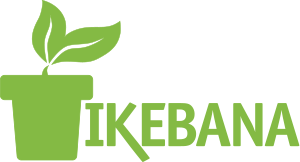Across the Volta & Beyond Current Affairs and vital news in ghana Redefining Perspectives.
- Across the Volta & Beyond: Current Affairs and vital news in ghana Redefining Perspectives.
- Political Landscape: Shifts and Stability
- Electoral Reforms and Citizen Participation
- Regional Security Concerns within Ghana
- Economic Developments: Growth and Challenges
- Social Issues: Healthcare, Education, and Inequality
- Addressing Healthcare Disparities
- Improving Educational Outcomes
- Technological Advancement & its Impact
Across the Volta & Beyond: Current Affairs and vital news in ghana Redefining Perspectives.
Ghana, a nation steeped in rich history and vibrant culture, is experiencing a dynamic period of growth and change. Access to comprehensive and timely news in ghana is now more crucial than ever, shaping public discourse, influencing policy, and connecting citizens to the events that impact their lives. From political developments and economic trends to social issues and cultural celebrations, staying informed is essential for navigating the complexities of modern Ghanaian society. This article delves into the current affairs impacting the nation, offering a detailed perspective on key events and developments.
Political Landscape: Shifts and Stability
The Ghanaian political arena remains a fascinating study of democratic progress. Recent years have witnessed a healthy level of political debate, coupled with a generally stable transfer of power. However, challenges remain, including concerns about corruption, electoral integrity, and the equitable distribution of resources. The performance of the current administration is consistently under scrutiny, with various stakeholders voicing opinions on key policy decisions.
The two major political parties, the New Patriotic Party (NPP) and the National Democratic Congress (NDC), continue to dominate the political landscape. Their strategies and ideologies profoundly influence the direction of the nation. Understanding their platforms and the nuances of their competition is vital for citizens seeking to engage meaningfully in the democratic process.
Electoral Reforms and Citizen Participation
Discussions surrounding electoral reform are gaining momentum in Ghana. There are calls for improvements to the voter registration process, enhanced security measures during elections, and greater transparency in the ballot counting procedures. Civil society organizations are actively advocating for these changes, pressing for reforms that will strengthen public trust in the electoral system.
Citizen participation in the democratic process extends beyond simply voting. Active engagement in public discourse, holding elected officials accountable, and advocating for policy changes are all crucial components of a thriving democracy. Citizens are increasingly utilizing social media platforms to express their views and mobilize support for causes they believe in.
The role of the Electoral Commission is pivotal in ensuring free and fair elections. Maintaining its independence and impartiality is of utmost importance to uphold the integrity of the democratic process. Public confidence in the Electoral Commission directly impacts the legitimacy of election results and the overall stability of the nation.
Regional Security Concerns within Ghana
Maintaining regional security is a key priority for the Ghanaian government. The country faces ongoing challenges related to cross-border crime, including smuggling and illegal resource extraction. Collaboration with neighboring countries and international organizations is essential for addressing these threats effectively. The threat of terrorism, though currently low, is also a constant concern, requiring robust security measures.
| Cross-Border Smuggling | Northern Region | Increased Border Patrols & Cooperation with neighboring countries. |
| Illegal Resource Extraction (Galamsey) | Western & Ashanti Regions | Operation Vanguard & stricter regulations on artisanal mining. |
| Potential for Terrorist Infiltration | Northern Border Areas | Enhanced Intelligence Gathering & Security Training. |
Economic Developments: Growth and Challenges
Ghana’s economy has experienced periods of robust growth, driven by sectors such as agriculture, mining, and tourism. However, the country also faces significant economic challenges, including high levels of public debt, inflation, and unemployment. Diversifying the economy and creating more sustainable employment opportunities are crucial for long-term prosperity.
The Bank of Ghana plays a central role in managing the economy, setting interest rates and controlling the money supply. Stabilizing the currency, the Cedi, is a major ongoing concern. External factors, such as fluctuations in global commodity prices, can significantly impact Ghana’s economic performance.
Social Issues: Healthcare, Education, and Inequality
Access to quality healthcare and education remains a significant challenge in Ghana. While progress has been made in expanding access to these services, disparities persist, particularly between urban and rural areas. Investments in infrastructure, teacher training, and improved healthcare facilities are essential to address these inequalities.
- Healthcare Access: Improving rural healthcare infrastructure and affordability.
- Education Quality: Enhancing teacher training, curriculum development, and resource allocation.
- Social Inequality: Implementing policies that promote equal opportunities and reduce income disparities.
- Youth Unemployment: Creating skills development programs and promoting entrepreneurship.
Addressing Healthcare Disparities
The disparities in healthcare access between urban and rural areas are a major concern. Many rural communities lack access to basic healthcare services, including adequate medical facilities, trained personnel, and essential medicines. Addressing this issue requires significant investment in infrastructure and the training of healthcare professionals willing to work in rural areas.
Mobile healthcare clinics and telemedicine are being explored as potential solutions to extend healthcare access to remote communities. Utilizing technology to overcome geographical barriers can significantly improve the health outcomes of underserved populations. Community health workers also play a crucial role in providing basic healthcare services and health education.
Investing in preventative healthcare measures, such as immunization programs and health education campaigns, is essential for improving public health outcomes. Promoting healthy lifestyles and raising awareness about disease prevention can significantly reduce the burden on the healthcare system.
Improving Educational Outcomes
Enhancing the quality of education in Ghana requires a multifaceted approach. Investing in teacher training is paramount, ensuring that educators have the skills and knowledge to effectively deliver quality instruction. Curriculum development must be aligned with the needs of the job market, equipping students with the skills they need to succeed in the 21st-century workforce.
Increasing access to educational resources, such as textbooks, computers, and internet connectivity, is also crucial. Providing students with the tools they need to learn and succeed is essential for closing the achievement gap. Scholarships and financial aid programs can help students from disadvantaged backgrounds access higher education.
Promoting vocational and technical education is vital for equipping students with the skills they need for skilled trades. Creating partnerships between educational institutions and industry can help ensure that training programs are relevant to the needs of the labor market. This will contribute to reducing unemployment and promoting economic growth.
Technological Advancement & its Impact
Ghana is witnessing a rapid increase in the adoption of technology, impacting various sectors, including banking, agriculture, and communications. Mobile money services have become immensely popular, providing financial inclusion to a significant portion of the population. The growth of the tech sector is creating new employment opportunities and driving innovation.
However, the digital divide remains a concern, with limited access to internet connectivity in many rural areas. Bridging this gap requires investment in infrastructure and affordable internet access. Digital literacy programs are also essential to ensure that citizens can effectively utilize technology.
- Mobile Money Adoption: Revolutionizing financial inclusion, especially in rural areas.
- Tech Startup Growth: Increasing job opportunities, particularly for the youth.
- Digital Infrastructure: Expanding internet connectivity in underserved areas remains a challenge.
- Digital Literacy: Empowering citizens to utilize technology for socio-economic advancement.
The government is actively promoting the development of a digital economy, recognizing its potential to drive economic growth and improve the quality of life for citizens. Initiatives such as the Ghana Digital Transformation Project are aiming to modernize government services and promote digital innovation.
The ongoing development and changes within Ghana require informed citizens. Continuous access to reliable news in ghana is vital to understanding the trends and shifts occurring across the nation, enabling individuals to participate more effectively in shaping its future.


Lascia un Commento
Vuoi partecipare alla discussione?Sentitevi liberi di contribuire!